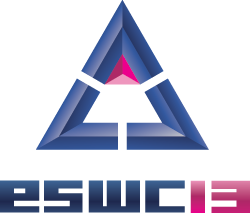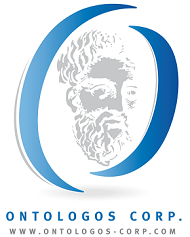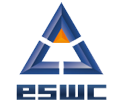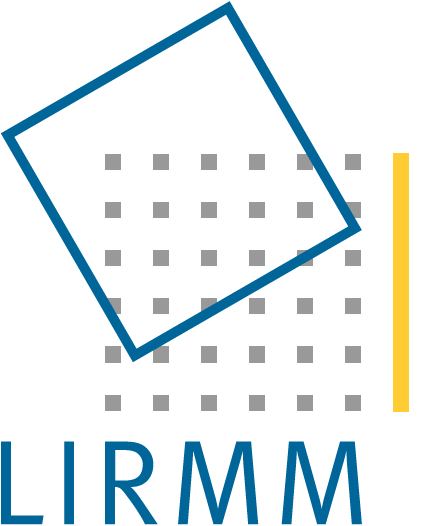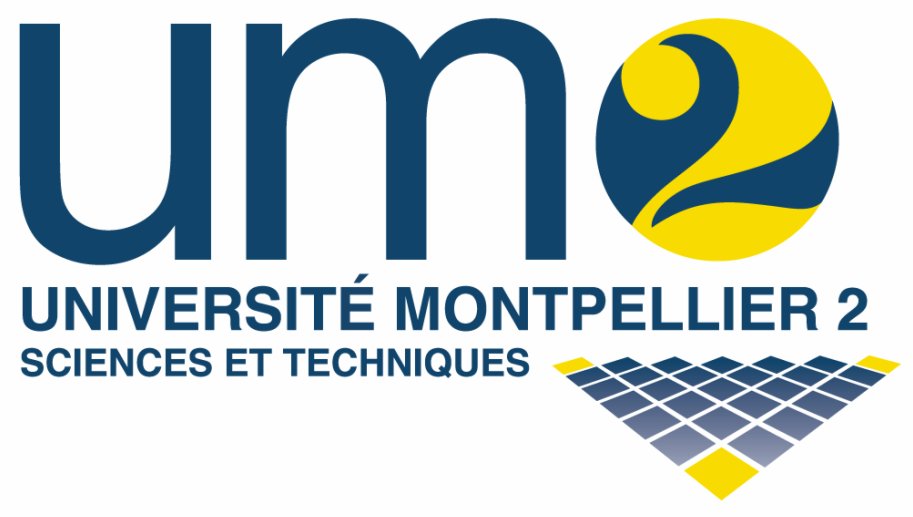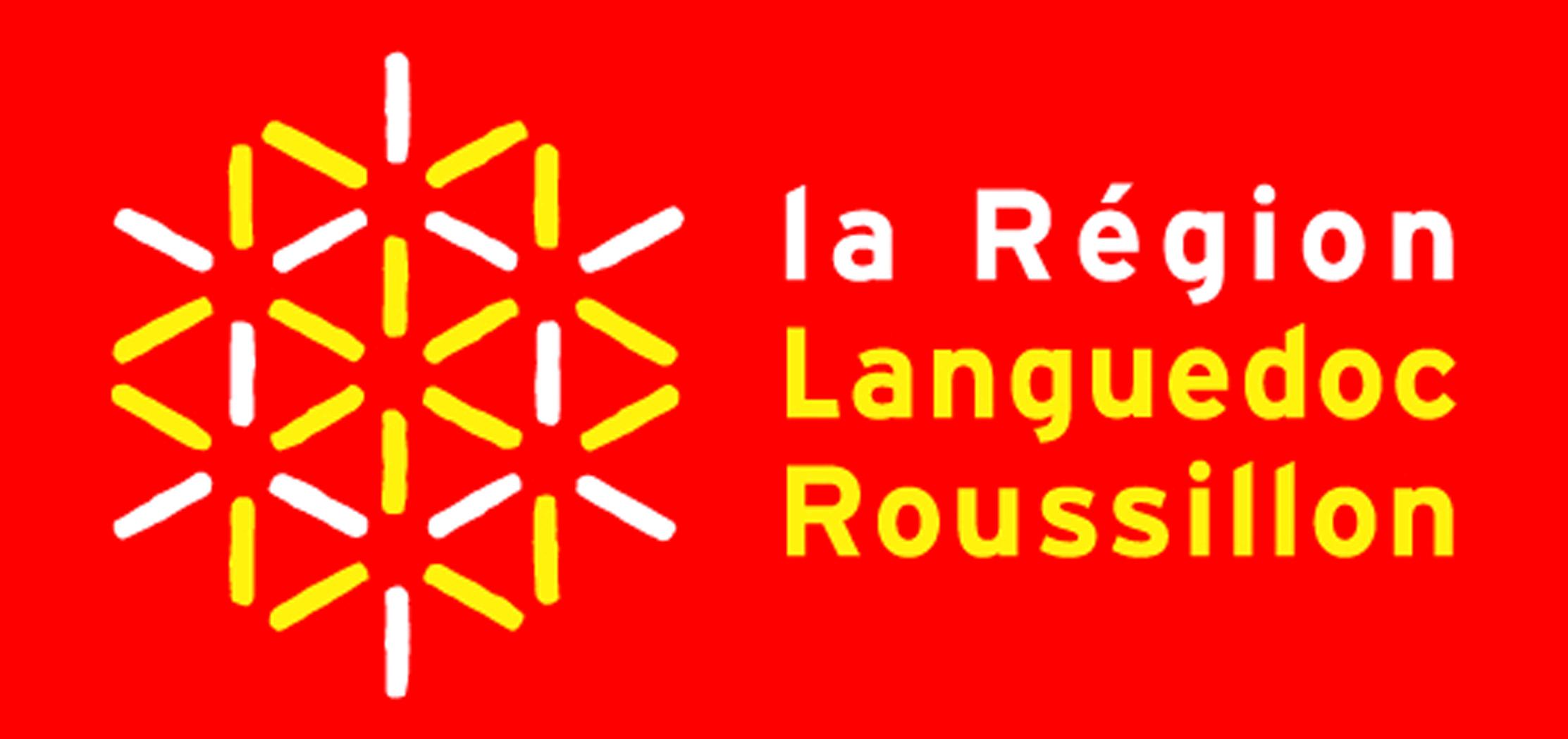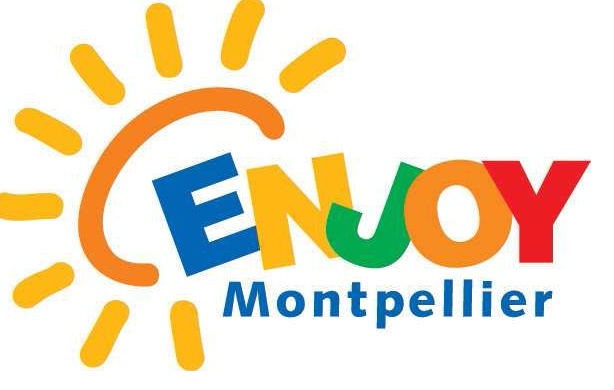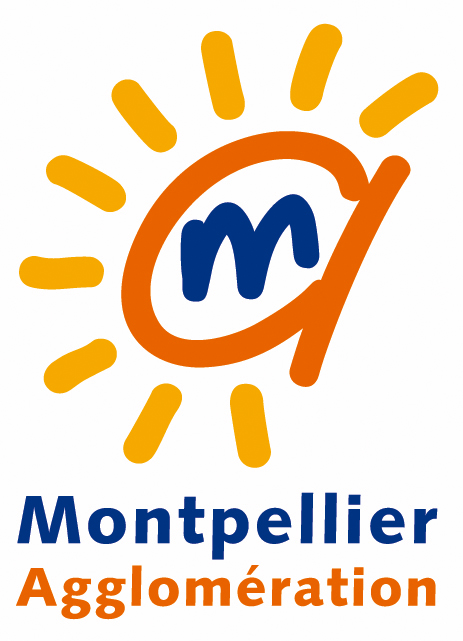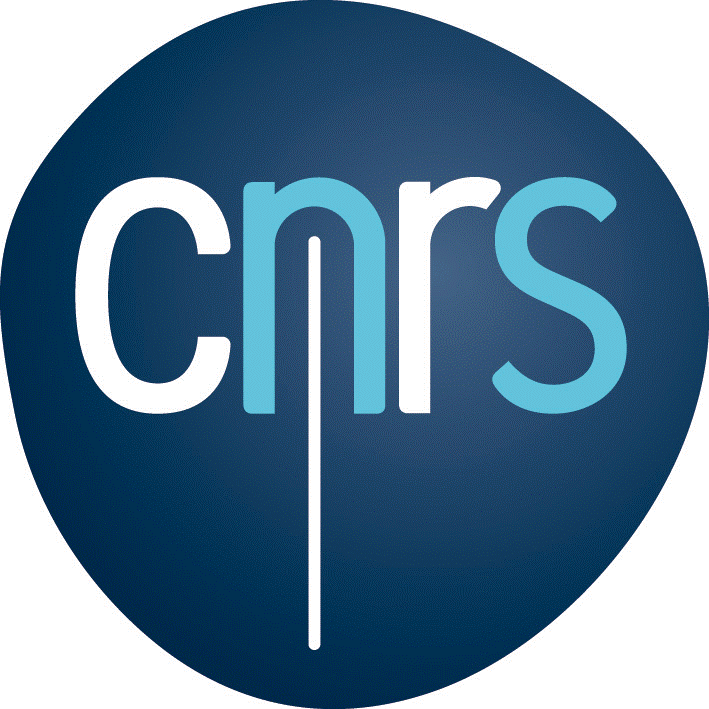The Monnet project develops a solution to the cross-language information access problem by using a novel combination of Machine Translation and Semantic Web Technology. Use cases are in business intelligence and public service access across language boundaries. Monnet targets this problem at the semantic level through a novel approach to cross-lingual information access that enriches state of the art machine translation with domain semantic (ontologies), terminological (taxonomies and term bases) and linguistic (corpora and lexical resources) information.
Sponsors and Supporters
Gold Sponsors
Ontotext

Ontotext is a leading semantic software developer, offering the OWLIM database and platforms for semantic search, web mining, LINKED DATA MANAGEMENT and manual CONTENT annotation. Ontotext provides professional services for text mining and semantic data integration; it has continuously growing network of partners, resellers and customers.
VideoLectures.NET

VideoLectures.NET is an award-winning free and open access educational video lectures repository. The lectures are given by distinguished scholars and scientists at the most important and prominent events like conferences, summer schools, workshops and science promotional events from many fields of Science. The portal is aimed at promoting science, exchanging ideas and fostering knowledge sharing by providing high quality didactic contents not only to the scientific community but also to the general public. All lectures, accompanying documents, information and links are systematically selected and classified through the editorial process taking into account also users' comments.
Silver Sponsors
Datalift
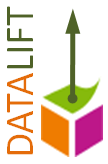
The Datalift project aims at building a comprehensive platform allowing to realize the lifting of data coming from a variety of structured data sources into interlinked data published on the web of linked data. The lifting process is in four steps: ontology selection, data conversion, data interlinking, data publication, each supported by a number of tools based on state of the art techniques.
Datalift is released as an open source modular platform.
iSOCO

iSOCO, Intelligent Software Components S.A. (www.isoco.com) is a technology company founded in 1999, becoming the first company in Spain and one of the first in Europe to offer solutions based on Semantic Web technologies. Currently, iSOCO employs around 100 persons in offices in Barcelona, Madrid, Valencia, and Pamplona. iSOCO has ample experience in international R&D activities, especially in the different EU Frame Programmes, and is successful in transferring research results in the field of Semantic Web technologies to the market. To this purpose iSOCO Lab, the Research branch of the company, was created in 2001 with three main objectives: maintain the technological level of the company, foster innovation to approach the market through new products, and pave the way for the application of new technologies to business.
ROBUST: Risk and Opportunity management of huge-scale BUSiness communiTy cooperation

Online communities generate major economic value and form pivotal parts of corporate expertise management, marketing, product support, CRM, product innovation and advertising. Communities can exceed millions of users and infrastructures must support hundreds of millions discussion threads that link together billions of posts.
ROBUST is targeted at developing methods to understand and manage the business, social and economic objectives of the users, providers and hosts and to meet the challenges of scale and growth in large communities. Hence, the objectives of ROBUST are to find solutions for community risk management, large scale data management, models of community polity and politics, community simulation and community data analysis.
SIFR

The volume of data in biomedicine is constantly increasing. The community has turned toward ontologies to design semantic indexes of data; however there is a strong lack of French ontologies and related services.
The Semantic Indexing of French Biomedical Data Resources (SIFR) project investigates the scientific and technical challenges in building ontology-based services to leverage biomedical ontologies and terminologies in indexing, mining and retrieval of French biomedical data. We build an ontology-based indexing workflow (i.e., French Annotator) similar to what exists for English resources but dedicated and specialized for French. Our main goal is to enable straightforward use of ontologies freeing health researchers to deal with knowledge engineering issues and to concentrate on the biological and medical challenges. SIFR will offer the French biomedical community (e.g., clinicians, health professionals, researchers) highly valuable ontology-based indexing services that will enhance their data production and consumption workflows.
The SIFR project brings together several young researchers at LIRMM, University of Montpellier with highly qualified and experienced partners such as the US National Center for Biomedical Ontologies (NCBO, Stanford) and the French CISMeF group of Rouen University Hospital.
The project is funded by ANR, UM2 & CNRS.
Yahoo! Labs

Yahoo! Labs is pioneering the new sciences underlying the Web. As the center of scientific excellence here at Yahoo!, we deliver both fundamental and applied scientific leadership, publish research and create new technologies that power Yahoo!’s products. We're responsible for big inventions—and our goals are nothing short of inventing the future of the Internet and creating the next generation of businesses for Yahoo!.
Bronze Sponsors
Eoweo

Eoweo is a French company which goal is to develop innovative closed & open applications using semantic technologies and semantic standards.
We work on our projects using innovative technologies collecting, analyzing and visualizing graph analysis as a unified way to organize and extract insights especially from the social web.
Also we work as experts for our clients whenever they need to exploit structured and unstructured content, we conceptualize innovative solutions and services, and recommend the right framework or the products or source codes to use. Our areas of specialisation are the semantic web standards and technologies, the mining processes for french language, and new algorithms.
Eoweo is Semsphere Certified and proudly STI2 associate member.
fluid Operations - flexibility comes first!
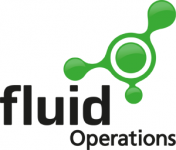
fluid Operations® (fluidOps) is an innovative software company headquartered in Walldorf, Germany. Its focus lies on the research and development of novel technologies for intelligent cloud and data management in the enterprise. With the Information Workbench®, fluidOps delivers a highly customizable platform for Linked Data and Big Data management and solution development. This includes support for the semantic integration of heterogeneous data sources across the borders of individual domains, collaborative knowledge acquisition and augmentation, semantic search, business intelligence and analytics, as well as data visualization and exploration. fluidOps’ Conference Explorer app won the Linked Data-a-Thon at the 2011 International Semantic Web Conference and was placed in the WWW 2012 Metadata Challenge. Gartner Analysts named fluidOps, “Cool Vendor in the SAP Ecosystem” in 2010. In 2012, fluid Operations won the “Best in Cloud” Award in the category “Infrastructure as a Service – Private Cloud”. For more information about fluidOps and its products and solutions please visit www.fluidOps.com.
Best Paper Award Sponsor
Logilab
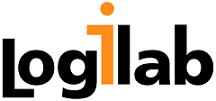
Logilab is an innovative company specialized in the semantic web and scientific computing. Logilab initiated the CubicWeb semantic web framework, a piece of free software used for award-winning applications like http://data.bnf.fr/ the catalog of the french national library. Using CubicWeb, Logilab built its scientific computing platform, that offers simulation data management and high-perfomance computing services in the cloud. Logilab is developing at a rapid pace and always seeking talented and experienced people that want to work on projects that lead innovation in their domain.
GOLD+ / EU-Projects
Big Data Public-Private Forum

Big Data is an emerging field where innovative technology offers alternatives to resolve the inherent problems that appear when working with huge amounts of data, providing new ways to reuse and extract value from information.
Big Data Public Private Forum (BIG) is working towards the definition and implementation of a clear strategy that tackles the necessary efforts in terms of research and innovation, while also it provides a major boost for technology adoption and supporting actions for the successful implementation of the Big Data economy.
Building an industrial community around Big Data in Europe is the priority of this project, together with setting up the necessary collaboration and dissemination infrastructure to link technology suppliers, integrators and leading user organizations.
eFreight: Enabling information sharing for interoperable Freight Transport and Logistics

The project addresses the development, validation and demonstration of innovative e-Freight capabilities. e-Freight capabilities will be developed to support the following four main categories of e-Freight stakeholders:
- Transport users (shippers, freight forwarders, etc) to identify and use direct or combined transport services most suited for their purpose.
- Transport service providers in all modes to provide information about their services and exchange information electronically with relevant actors through planning, executing and completing transport operations; to set up of (liner) service networks adhering to co-modality principles for improved efficiency and end-to-end quality of surface freight transportation.
- Transport infrastructure providers to facilitate the best possible use of the complete transport infrastructure and support transport users by providing information about the available transport infrastructure and how to use it.
- Transport regulators to obtain in the simplest possible way the required information for monitoring compliance with applicable regulations, and to exchange information with other authorities for collaboration in security and environmental risk management.
LDBC: Linked Data Benchmark Council
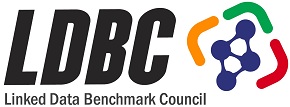
Non-relational data management is emerging as a critical need for the new data economy based on large, distributed, heterogeneous, and complexly structured data sets. This new data management paradigm also provides an opportunity for research results to impact young innovative companies working on new RDF and graph data management technologies to start playing a significant role in this new data economy. Standards and benchmarking are two of the most important factors for the development of new information technology, yet there is still no comprehensive suite of benchmarks and benchmarking practices for RDF and graph databases, nor is there an authority for setting benchmark definitions and auditing official results. Without them, the future development and uptake of these technologies is at risk by not providing industry with clear, user-driven targets for performance and functionality.The goal of the Linked Data Benchmark Council (LDBC) project is to create the first comprehensive suite of open, fair and vendor-neutral benchmarks for RDF/graph databases together with the LDBC foundation which will define processes for obtaining, auditing and publishing results. The core scientific innovation of LDBC is therefore to define meaningful benchmarks derived from a combination of actual usage scenarios combined with the technical insight of top database systems researchers and architects in the choke points of current technology. LDBC will bring together a broad community of researchers and RDF and graph database vendors to establish an independent authority, the LDBC foundation, responsible for specifying benchmarks, benchmarking procedures and verifying/publishing results. The forum created will become a long-surviving, industry supported association similar to the TPC. Vendors and user organisations will participate in order to influence benchmark design and to make use of the obvious marketing opportunities.
LinkedUp
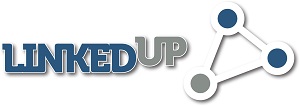
The LinkedUp project is a FP7 Support Action which pushes forward the exploitation and adoption of public, open data available on the Web, in particular by educational organisations and institutions. To address these goals, LinkedUp provides a range of activities, including the establishment of the LinkedUp Data Challenges and a corresponding evaluation framework. These are aimed at identifying and promoting innovative success stories which exploit large-scale Web data in educational scenarios as part of robust applications and tools.
Additional dataset curation activities will result in a repository and catalog of well-described and assessed datasets for educational purposes and will support participants of the data challenge, as well as interested data consumers and application developers in general. The overall aim is to facilitate the development of innovative applications produced by the LinkedUp community and challenge participants and their deployment in real-world use case scenarios. A collection of suitable use cases have been collected by the LinkedUp consortium and representatives of associated organisations, including representatives from renowned industrial, academic and higher education institutions such as Elsevier, the BBC, or the Commonwealth of Learning.
MSEE: Manufacturing Service Ecosystem

By 2015, novel service-oriented management methodologies and the Future Internet universal business infrastructure will enable European virtual factories and enterprises to self-organize in distributed, autonomous, interoperable, non-hierarchical innovation ecosystems of tangible and intangible manufacturing assets, to be virtually described, on-the-fly composed and dynamically delivered as a Service, end-to-end along the globalised value chain
The MSEE 2015 Vision stems upon two complementary pillars, which have characterized the last ten years of research about Virtual Organizations, Factories and Enterprises: Service Oriented Architectures (SOA) and Digital Business Ecosystems (DBE).
The first Grand Challenge for the MSEE project is to make SSME (Service Science, Management and Engineering) evolve towards Manufacturing Systems and Factories of the Future. The second Grand Challenge for the MSEE project is to transform current manufacturing hierarchical supply chains into manufacturing open ecosystems. The synthesis of the two Grand Challenges above in industrial business scenarios and their full adoption in some European test cases will result in new Virtual Factory Industrial Models, where service orientation and collaborative innovation will support a new renaissance of Europe in the global manufacturing context.
PeerAssist: A P2P platform supporting virtual communities to assist independent living of senior citizens

The main scope of the PeerAssist project is the conceptualisation, design, implementation and demonstration of a flexible Peer-to-Peer (P2P) platform, which will allow elderly people (not necessarily familiar with ICT technologies) to build virtual communities dynamically based on interests and needs they share. The PeerAssist platform will facilitate establishing on demand ad-hoc communities with friends, family, neighbours, caregivers, facilitators, care providers, etc., based on shared interests and communication needs. The community building and the P2P interaction will be achieved using information extracted from peer roles, profiles and user modelling, context that describes the overall user environment, and the specific request initiated, or service provided, by a peer, all of which are represented semantically in a machine understandable form.
PlanetData
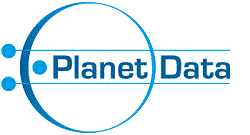
The PlanetData project aims to establish a sustainable European community of researchers that supports organizations in exposing their data in new and useful ways. PlanetData pushes forward the state-of-the-art in large-scale data management and its application to the creation of useful, open data sets. This is motivated by the increasing reliance of business on large public data; the uptake of open data principles in many vertical sectors; and the need of research communities to make sense out of petabytes of scientific data, to describe and expose this data in ways that encourage and enable collaboration.
PortDial: Language Resources for Portable Multilingual Spoken Dialogue Systems

Speech services are becoming an increasingly important market segment for Europe's SMEs. A major roadblock in producing low-cost high-quality spoken dialogue system (SDS) applications is the lack of linguistic resources that will enable the porting of SDS to new domains or languages. Currently, porting spoken dialogue systems to new domains is time-consuming, requires expertise in language engineering and iterative tuning. Although by now mature technologies exist that can facilitate SDS porting to new domains, e.g., ontology enrichment,linking text data to ontologies, automatic grammar induction, these technologies have not penetrated through to commercial systems yet. In PortDial, we bring together European SMEs that are developing state-of-the-art spoken dialogue systems and the handcrafted semantic components underlying such systems with research institutions at the forefront of progress in the automatic creation or enrichment of semantic language resources.
Together with the commercial partners, we have identified a list of mature technologies that can help automate (or machine-assist) the process for the creation of SDS concepts, services and grammars. PortDial will result in :
1) a commercial platform for quick prototyping of interactive spoken dialogue applications to new domains and languages,
2) the corresponding multilingual collections of concepts-services-grammars for specific application domains (marketed separately), and
3) a multilingual linked-data ontological corpus that can be freely used for spoken dialogue research and prototyping for non-commercial purposes.
The resulting platform will reduce the effort for prototyping new application domains by up to 30%, and up to 50% for porting the application to new languages. The SDS linguistic resources will lower the barrier to entry for European SMEs to SDS technologies, allowing for inexpensive proof-of-concept demonstrator development, opening up new markets and application domains.
Prelida: Preserving Linked Data
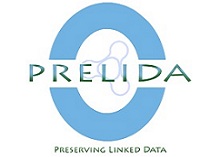
The PRELIDA project targets the particular stakeholders of the Linked Data community, including data providers, service providers, technology providers and end user communities. These stakeholders have not been traditionally targeted by the Digital Preservation community, and are typically not aware of the digital preservation solutions already available. Hence an important task of PRELIDA is to raise awareness of existing preservation solutions and to facilitate their uptake.
At the same time, the Linked Data cloud has specific characteristics in terms of structuring, interlinkage, dynamicity and distribution, that pose new challenges to the preservation community. PRELIDA organises in-depth discussions among the two communities to identify which of these characteristics require novel solutions, and to develop road maps for addressing the new challenges.
RENDER

The Web has proved to be an unprecedented success for facilitating the publication, use and exchange of information, at planetary scale, on virtually every topic, and representing an amazing diversity of opinions, viewpoints, mind sets and backgrounds. Its design principles and core technological components have lead to an unprecedented growth and mass collaboration. This trend is also finding increasing adoption in business environments. Nevertheless, the Web is also confronted with fundamental challenges with respect to the purposeful access, processing and management of these sheer amounts of information, whilst remaining true to its principles, and leveraging the diversity inherently unfolding through world wide scale collaboration.
Support: Security UPgrade for PORTs

The project aims to raise the current level of port security by integrating legacy port systems with new surveillance and information management solutions. Ports will be given tools to establish the necessary and sufficient security level to satisfy evolving international regulations and standards while efficiently supporting the complexity of the real port environment.
